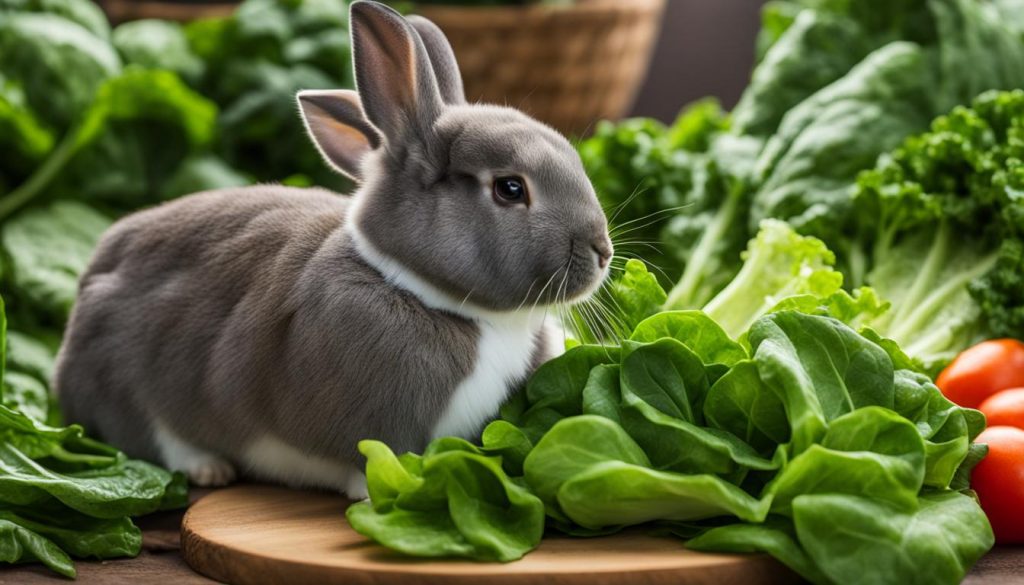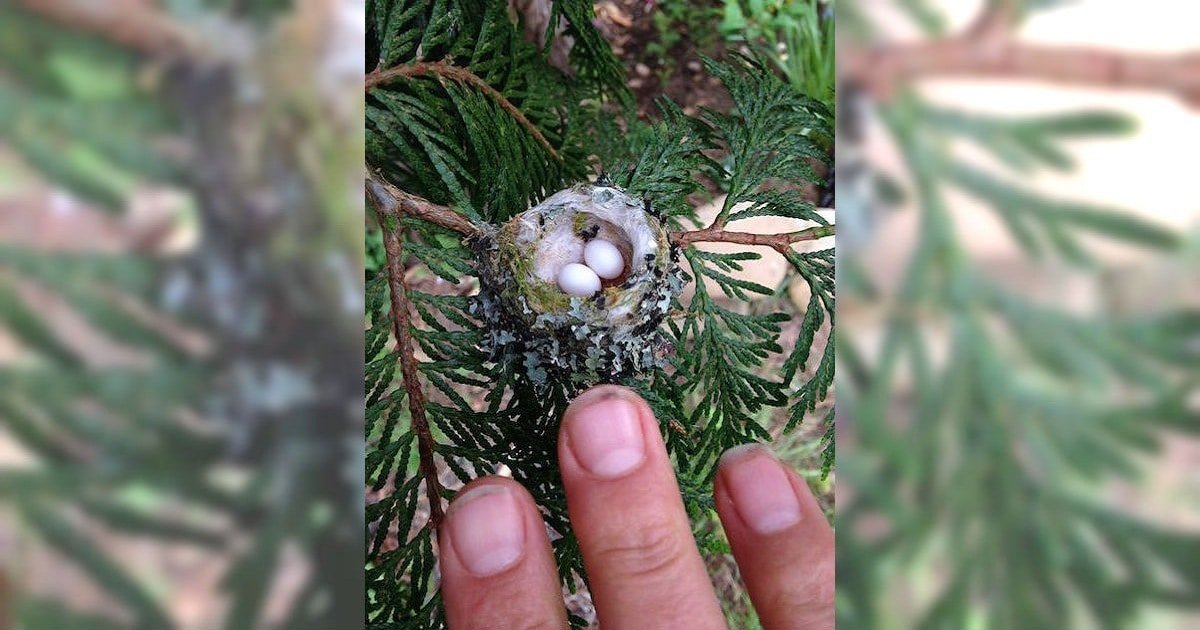As a responsible rabbit owner, it is important to ensure that our furry friends are getting a well-balanced and nutritious diet. One common question that rabbit owners often ask is, “Can rabbits eat spinach leaves?”
The answer is, yes, rabbits can eat spinach leaves, but it is crucial to follow some safe feeding tips to ensure their well-being. While spinach is packed with minerals and vitamins that can benefit rabbits, it also contains oxalates, which can cause urinary tract issues and discomfort if consumed in large quantities.
Can Rabbits Eat Spinach Leaves? Yes, but only in small amounts.
- Spinach can be fed to rabbits, but only in moderation.
- Choose organic spinach and wash the leaves before feeding them to your rabbit.
- Introduce spinach slowly, starting with small portions to avoid digestive issues.
- Rotate spinach with other leafy greens to ensure a balanced diet.
- Consult a veterinarian if you notice any adverse reactions or allergies in your rabbit.
The Importance of Leafy Greens in a Rabbit’s Diet
As a responsible rabbit owner, it’s crucial to understand the significance of leafy greens in your furry friend’s diet. Alongside hay, pellets, and water, leafy greens play a vital role in providing essential nutrients and fiber for a rabbit’s digestive system. These nutrient-rich vegetables contribute to overall rabbit nutrition and are an integral part of maintaining a well-balanced diet.
When it comes to leafy greens, opt for dark green varieties like collard greens, romaine lettuce, cilantro, beet greens, watercress, and carrot tops. These vegetables are not only loaded with vitamins and minerals but also offer a refreshing variety of flavors for your rabbit to enjoy. Including a mix of different leafy greens in their diet provides a well-rounded nutrition plan to ensure their optimal health and well-being.
The Nutritional Value of Spinach for Rabbits
Spinach is a nutrient-dense vegetable that offers various health benefits to rabbits. It is high in dietary fiber, vitamins (A, C, and K), and minerals (iron, magnesium, and manganese). These nutrients support a rabbit’s immune system, bone health, organ function, and overall well-being.
However, due to its oxalate content, spinach should be fed in moderation to prevent health issues. Oxalates can interfere with calcium absorption and may contribute to bladder or kidney problems in rabbits if consumed excessively. Therefore, it is essential to include a variety of other leafy greens in a rabbit’s diet to ensure balanced nutrition.
Rotating spinach with other vegetables like arugula, kale, or parsley can provide a wider range of vitamins and minerals while minimizing the potential risks associated with oxalates. This ensures that rabbits receive a balanced diet and enjoy a variety of flavors and textures.

Guidelines for Feeding Spinach to Rabbits
When feeding rabbits spinach, it is important to choose organic varieties to avoid pesticides. Safe foods for rabbits are essential for their health and well-being. Before feeding them, make sure to wash the leaves thoroughly to remove any dirt or impurities.
Rabbits can consume different types of spinach, including baby spinach, which is lower in oxalates, as well as larger spinach leaves and stems. By providing a variety of spinach options, you can add some excitement to their diet.
It is important to feed rabbits raw spinach as cooked food can be difficult for them to digest. Raw spinach retains its nutritional value, ensuring that your furry friend gets all the essential vitamins and minerals they need.
Before offering spinach to your rabbits, remember to cut off the roots of the vegetable. These roots contain a high sugar content and offer few health benefits to your rabbits.
Lastly, remember to introduce spinach slowly and in moderation. Feeding them too much spinach can potentially lead to digestive issues. A gradual introduction will help their digestive system adjust to the new addition in their diet.
How Much Spinach Should Rabbits Eat?
When it comes to feeding spinach to rabbits, it’s essential to consider their body weight. According to the RSPCA, small rabbits may not be able to handle any amount of spinach, while larger rabbits can enjoy a small handful of spinach once every few days (but not more than twice a week). It’s important to remember that spinach should not be the only green in a rabbit’s diet. Other high oxalate vegetables like mustard greens and Swiss chard should also be fed in small portions to maintain a balanced diet. To ensure a varied and nutritious meal plan for your rabbit, it’s best to rotate different greens.

Monitoring Your Rabbit’s Diet
As with any dietary changes, it’s crucial to pay attention to how your rabbit reacts to spinach and other greens. Observe their digestion, stool consistency, and overall well-being to ensure they are not experiencing any negative effects. Remember, each rabbit is unique, and their dietary needs may vary. If you have concerns or questions about your rabbit’s diet, it’s always wise to consult with a veterinarian for personalized advice and guidance.
Potential Risks and Allergies Associated with Spinach Consumption
While spinach can be a healthy addition to a rabbit’s diet, it is important to be aware of the potential risks and allergies associated with its consumption. Spinach contains oxalates, which can have negative effects on a rabbit’s stomach and urinary tract if eaten in large amounts. These oxalates can cause irritation and discomfort, leading to issues such as urinary tract problems and itchiness in the skin or mouth.
Furthermore, some rabbits may be allergic to spinach. It is essential to introduce spinach slowly and in small portions to observe any adverse reactions. If your rabbit shows signs of allergies or discomfort after eating spinach, such as vomiting, diarrhea, or changes in behavior, it is advisable to consult a veterinarian for guidance.
When feeding spinach to your rabbits, it is crucial to keep moderation in mind. While spinach offers valuable nutrients like potassium and vitamins, including Vitamin A, it is best to maintain a varied diet by rotating spinach with other leafy greens. This helps to ensure a balanced intake of nutrients and reduces the risks associated with consuming spinach in excess.
It’s also important to choose organic varieties of spinach to avoid pesticides and wash the leaves thoroughly before feeding them to your rabbits. By taking these precautions and monitoring your rabbit’s response to spinach, you can help keep them safe and healthy.
Conclusion
Rabbits can safely enjoy spinach leaves as part of their diet, but moderation is key. Spinach provides essential nutrients and fiber that contribute to a rabbit’s overall nutrition. However, it is important to remember that spinach contains oxalates, which can be harmful if consumed in large quantities.
To ensure a balanced diet, it is recommended to feed rabbits a variety of leafy greens, rotating spinach with other safe options such as collard greens, romaine lettuce, and beet greens. By doing so, rabbits can benefit from a range of nutrients while minimizing the risk of oxalate-related health issues.
When introducing spinach to a rabbit’s diet, it is crucial to start slowly and observe any adverse reactions. This will help you determine if your furry friend tolerates spinach well. Additionally, consulting a veterinarian is always recommended for personalized feeding advice tailored to your rabbit’s specific needs and overall health.
Remember, the health and nutrition of your rabbit are of utmost importance, so providing a balanced and varied diet that includes safe foods like spinach is key to their well-being.
FAQ
Can rabbits eat spinach leaves?
Yes, rabbits can eat spinach leaves, but only in moderation. Spinach provides minerals, like potassium and iron, and vitamins, especially Vitamin A. However, spinach contains oxalates, which can cause urinary tract issues and skin or mouth itchiness if eaten in large quantities.
What is the importance of leafy greens in a rabbit’s diet?
Leafy greens play a crucial role in a rabbit’s diet. Along with hay, pellets, and water, leafy greens provide essential nutrients and fiber for a rabbit’s digestive system. Dark green leafy vegetables like collard greens, romaine lettuce, cilantro, beet greens, watercress, and carrot tops are recommended for their high nutritional value.
What is the nutritional value of spinach for rabbits?
Spinach is a nutrient-dense vegetable that offers various health benefits to rabbits. It is high in dietary fiber, vitamins (A, C, and K), and minerals (iron, magnesium, and manganese). These nutrients support a rabbit’s immune system, bone health, organ function, and overall well-being.
What are the guidelines for feeding spinach to rabbits?
When feeding rabbits spinach, it is important to choose organic varieties to avoid pesticides. Wash the leaves before feeding them to the rabbits. Rabbits can eat different types of spinach, including baby spinach, which is lower in oxalates, and larger spinach leaves and stems. It is essential to feed them raw spinach as cooked food is difficult for rabbits to digest. Cut off the roots of the vegetable as they contain high sugar content and offer few health benefits. Introduce spinach slowly and in moderation to prevent digestive issues.
How much spinach should rabbits eat?
The amount of spinach rabbits can eat depends on their body weight. Small rabbits may not be able to handle any amount of spinach, while larger rabbits can consume a small handful of spinach once every few days (but not more than twice a week). It is best to rotate different greens in a rabbit’s diet to ensure a balanced and varied nutrition.
What are the potential risks and allergies associated with spinach consumption?
While spinach can be a healthy addition to a rabbit’s diet, there are potential risks associated with its consumption. The oxalate content in spinach can irritate a rabbit’s stomach and urinary tract if consumed in large amounts. Additionally, rabbits can be allergic to spinach, and it is important to introduce it slowly and observe any adverse reactions.






